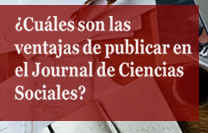Una discusión sobre el rol de las Organizaciones Internacionales en la teoría de las Relaciones Internacionales
Resumen
El artículo tiene por objetivo dar cuenta de los diferentes enfoques que desde la disciplina de las Relaciones Internacionales permiten estudiar el fenómeno de las organizaciones internacionales. En este sentido, en primer lugar se realiza un abordaje conceptual y una caracterización de las organizaciones internacionales, así como una diferenciación del término Instituciones Internacionales. En segundo lugar, se señalan aquellos trabajos a los que se tuvo acceso que han estudiado el tema en los últimos años, evidenciándose que han existido esfuerzos desde diferentes puntos del planeta en indagar sobre este tema. En tercer lugar, se analiza el papel que juegan las organizaciones internacionales en la disciplina, específicamente desde los enfoques teóricos del realismo y neorrealismo, liberalismo, institucionalismo neoliberal e interdependencia compleja, constructivismo y otras contribuciones teóricas (entre ellas, la visión crítica, el funcionalismo, neo-funcionalismo, la teoría del agente-principal y la perspectiva feminista). Por último, se presentan reflexiones finales. Así, el artículo estudia un actor internacional considerado por los autores de carácter más estatocéntrico no tradicional en las Relaciones Internacionales, tal como son las organizaciones internacionales, que desde mediados del siglo XX han incrementado su presencia en el sistema internacional, vinculándose en la actualidad tanto con gobiernos nacionales como subnacionales y abarcando una amplia variedad de temas y problemáticas.
Descargas
Citas
Andreev, A. (2007). To what extent are international organizations (IOs) autonomous actors in world politics? Opticon1826, 2, 1-8.
Ayllón, B. (2007). La Cooperación Internacional para el Desarrollo: fundamento y justificaciones en la perspectiva de la Teoría de las Relaciones Internacionales. Carta Internacional, 2(2), 25-40.
Barbé, E. (1995). Relaciones Internacionales. Madrid: Tecnos.
Barkin, J. S. (2006). International Organization: Theories and Institutions. New York: Macmillan.
Barnett, M. y Finnemore, M. (1999). The Politics, Power, and Pathologies of International Organizations. International Organization, 53(4), 699-732.
Barnett, M. y Finnemore, M. (2004). Rules for the World: International Organizations in Global Politics. Ithaca: Cornell University Press.
Barrea, J. (1991). Théories des Relations Internationales. París: CIAO.
Bayeh, E. (2014). Theories on the role of international organizations in maintaining peace and security. International Journal of Multidisciplinary Research and Development, 1(7), 347-350.
Béland, D. y Orenstein, M. (2013). International organizations as policy actors: An ideational approach. Global Social Policy. 13(2), 125-143.
Burchill, S. (2005). Liberalism. En S. Burchill et al (2005).Theories of International Relations. (Pp. 55-83). Nueva York: Macmillan.
Cox, R. (1983). Gramsci, hegemony and international relations: an essay in method. Journal of International Studies, 12(2), 162-175.
Cox, R. (2001). The Way Ahead: Towards a New Ontology of World Order. En R. Wyn Jones, Critical Theory and World Politics. (pp. 45-60). Boulder: Lynne Rienner.
De Almeida Freitas Lacerda, J. (2013). O papel das ideias e das Organizações Internacionais nas Teorias das Relações Internacionais. Revista de Estudos Internacionais, 4(1), 83-99.
Diez de Velasco, M. (1997): Instituciones de Derecho Internacional Público. España: Tecnos.
Duffield, J. (2007). What are International Institutions? International Studies Review, 9(1), 1-22.
Finnemore, M. y Sikkink, K. (2001). Taking Stock: The Constructivist Research Program in International Relations and Comparative Politics. Annual Review of Political Science, 4, 391-416.
Gramsci, A. (1971): Selections from the Prison Notebooks. New York: International Publishers.
Hawkins, D. et al (2006): Delegation and Agency in International Organizations (Political Economy of Institutions and Decisions). Cambridge: Cambridge University Press.
Herz, M. y Hoffmann, A. (2004): Organizações Internacionais: História e Práticas. Rio de Janeiro: Elsevier.
Hurtado Hurtado, J. (2014). Feminismo y organizaciones internacionales, ¿cambio o continuidad en las estructuras de poder? Revista Mito Cultural, 44 (n/d).
Jiménez González, C. (2003). Las teorías de la cooperación internacional dentro de las relaciones internacionales. Polis, 2(3), 115-147.
Keohane, R. (1993). Instituciones internacionales y poder estatal. Ensayos sobre teoría de las relaciones internacionales. Argentina: Grupo Editor Latinoamericano.
Keohane, R. y Nye, J. (1988). Poder e interdependencia. La política mundial en transición. Buenos Aires: Grupo Editor Latinoamericano.
Kratochwil, F. (1989). Rules, Norms and Decisions: On the Conditions of Practical and Legal Reasoning in International Relations and Domestic Affairs. Cambridge: Cambridge University Press.
Malamud, A. (2011). Conceptos, teorías y debates sobre la integración regional. Norteamérica, 6(2), 219-249.
Mearsheimer, J. (1994/95). The False Promise of International Institutions. International Security, 19(3), 5-49.
Meierhenrich, J. (2012). International Organizations. Londres: London School of Economics and Political Science (LSE).
Mitrany, D. (1943). A working peace system. Chicago: Quadrangle Books.
Onuf, N. (1989). World of Our Making: Rules and Rule in Social Theory and International Relations (New International Relations). Londres: Routledge.
Pinto, M. (2007). Contributos das teorías das RI para o estudo das organizações internacionais e da integração regional. Relações Internacionais, 16(n/d), 85-101.
Reinalda, B. y Verbeek, B. (2004). Decision Making Within International Organizations. Londres: Routledge.
Risse, T. (2002). Constructivism and International Institutions: toward conversations across Paradigms. En I. Katznelson y H. Milner (Eds.). Political Science: The State of the Discipline. (pp. 597-623). Nueva York: Norton.
Rodríguez Manzano, I. (1996). Funcionalismo, Neofuncionalismo y Relaciones Internacionales. Dos contribuciones doctrinales al estudio de las organizaciones internacionales. Dereito, 5(1), 289-303.
Sinclair A. y Byers M. (2006). When US Scholars Speak of “Sovereignty”, What Do They Mean? TranState Working Papers, 44(n/d), 1-26.
Waltz, K. (2000). Structural Realism after the Cold War. International Security, 25(1), 5-41.
Wendt, A. (1992). Anarchy is what States make of it: the Social Construction of Power Politics. International Organization, 46(2), 391-425.
Zamudio González, L. (2012). Introducción al Estudio de las organizaciones internacionales gubernamentales: la pertinencia de una agenda de investigación interdisciplinaria. México: Centro de Investigación y Docencia Económica.
Los autores conservan los derechos sobre su obra garantizando a esta revista el derecho de primera publicación, comprometiéndose a citar el Journal de Ciencias Sociales como referencia de la publicación original.
Los trabajos publicados en el Journal se publican bajo los términos que se indican en la Licencia de Creative Commons con la Atribución 4.0 Internacional (CC BY 4.0).




























